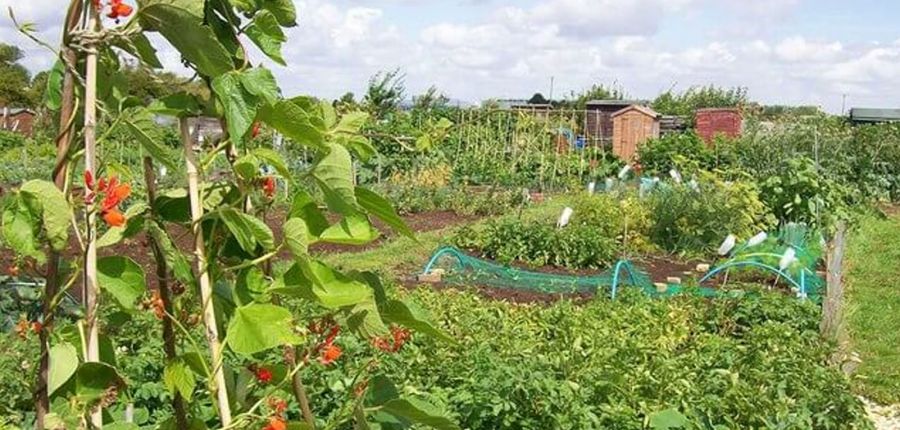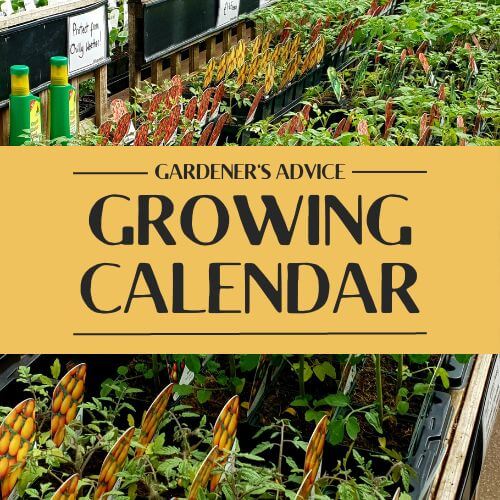Love your allotment
Posted By: rocket veg Category: Growing Veg, Seasonal AdviceIn mid August, it is National Allotments Week, a chance to showcase the opportunities and fun of having an allotment. If you’ve ever thought of taking on an allotment, now is the perfect time to make enquiries and you might even find that an allotment site near your home is holding an open day, the chance to meet allotment gardeners and see at first-hand what is actually involved.
Why have an allotment
If you have space in your garden, you should be able to find enough room to grow some vegetable crops, especially smaller varieties such as ‘salads’, peas and beans, but to grow space-hungry crops (potatoes, onions, pumpkins and squash spring to mind) a bigger piece of land is pretty much essential, so the obvious solution is to rent an allotment.
Bristol has a rich tradition of allotment gardening and was one of the first cities to provide land which could be rented by its residents, many of whom existed on a meagre diet and had little or no space for growing food where they lived. The German blockade of the British Isles towards the end of the First World War meant that every scrap of land was put to good use – repeated by the famous ‘Dig for Victory’ campaign during the Second World War. Enthusiasm for allotmenting waned during the latter decades of the twentieth century and a number of overgrown and largely abandoned allotment sites across the country were given over for development. However, the past twenty years or so have seen a surge of interest in ‘growing your own’ and the demand for allotments in Bristol is an all-time high with long waiting lists for a plot on the more popular sites.
Allotmenting is fun!
As well as the satisfaction of growing food, allotment gardening is a sociable pastime – the chance to share advice and tips about growing fruit and veg, chat about the weather (!) and meet people with a similar enthusiasm for gardening. When you need advice, there’s usually someone on hand to offer it and most people love being asked. You don’t need to be an expert to have a go!
If you’re a handy person who enjoys building ‘constructions’, an allotment offers the opportunity for endless fun: making a fruit cage; a cover for tender seedlings; supports for climbing plants; a cold frame or small greenhouse (permission may be needed for the latter, so check first); timber pallets turned into compost bins; empty plastic bottles used as cloches and for keeping pests at bay and so on.
And then there’s The Shed, a place to find solitude (and shelter from the rain…) amid the joyous clutter of tools and twine, netting and canes.
‘Allotmenting’ is also a family activity. Many children enjoy doing a spot of gardening – especially when the end result is something edible – but they want instant results and not all children like getting their hands dirty. Keep children occupied and interested with a series of short activities; and when choosing seeds for them to plant, go for varieties which are easy for little fingers to handle and which germinate readily.
See our blog ‘Seeds for children to sow and grow’ for some ideas!
Running an allotment – what it really involves
The truth is, allotment gardening involves a degree of hard work and a surprising number of people take on a plot without considering what is really required in terms of time and energy. Many tasks are repetitive and there are few short cuts. The best advice I was given when I first started came from a wise old gardener who strolled over one day and stood watching while I worked up a sweat, digging up a mass of couch grass and bindweed roots in an attempt to clear a bed. After a few minutes, he nodded and said quietly: ‘Little by little and you’ll soon have it done.’
Guidance suggests you need to spend a minimum of ten hours a week on your plot during the growing season and it’s best to do a little and often, rather than let things go for a few weeks and then turn up with the intention of having a blitz, only to find that weeds have smothered your precious seedlings and the grass paths are knee-high.
Getting an allotment of your own
If the waiting lists for allotment sites across Bristol are anything to go by, the interest in allotment gardening in this part of the country is at an all-time high. The allotment association which manages the site on which I have my plot has recently suspended its waiting list as demand has risen steadily at the very time as fewer plots have become available. There are even rumours of a seven year waiting for some of Bristol City Council’s more popular sites! That aside, if you have ever given serious thought to managing an allotment, get your name onto a list; you can always turn a plot down if your circumstances have changed when your name finally reaches the top of the list. Frustrating though it may be to have to wait for a plot, waiting lists serve a useful purpose in that they enable councils to assess demand and make more land available where possible.
National Allotments Week
Monday 14 August is the start of National Allotments Week, an initiative organised by the National Allotment Society.
This year’s theme (2017) is ‘Growing the Movement’ with a focus on the work of independent allotment associations, plot-holder volunteers and councils in managing, creating, developing and safeguarding allotment sites. Stories about allotments under threat from development are not uncommon and a row of much-neglected plots are likely to attract attention. You can find out more by visiting the NAS website, but the underlying message is – if you are lucky enough to have an allotment, make good use of it and give whatever support you can to the organisation which manages the site. Above all, enjoy your plot!
For more information about National Allotments Week (updated each year)
https://www.nsalg.org.uk/news-events-campaigns/national-allotments-week/







